10 easy knee-pain treatments that you need to try
Soothe your achy knees with these expert-approved tips and treatments.
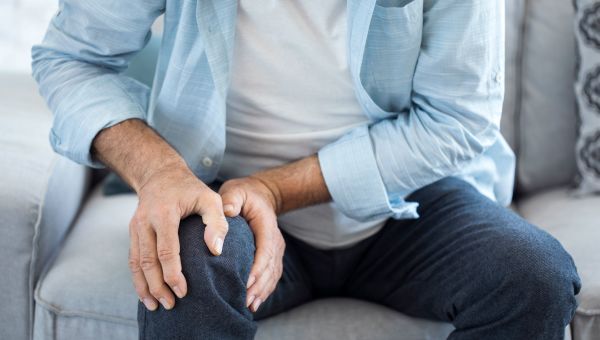
If your knees ache from time to time, you’re not alone: Knee pain leads to over a million U.S. emergency room visits each year.
There’s a long list of possible causes for knee pain, says Dennis Chang, MD, an orthopedic surgeon from Rose Medical Center in Denver, Colorado. These include:
- Injuries
- Arthritis
- Bursitis, or inflammation of the fluid-filled sacs around your knee
- Overuse or under use—both running and sitting for too long may cause front-of-the-knee pain
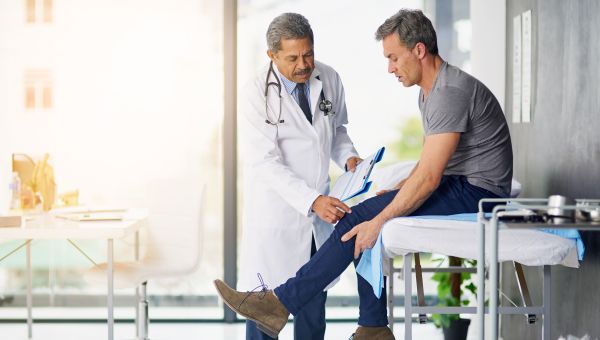
Know when to call your healthcare provider
If your pain lasts longer than two weeks or, if it gets worse despite rest and over-the-counter meds, make an appointment with your HCP, says Chang. Your family doctor may diagnose and treat some knee conditions. But for complex problems, he or she may refer you to an orthopedic specialist or bone doctor.
Make an appointment ASAP if:
- Your knee gives out when you put weight on it
- It locks when you bend it
- You have a fever, plus swelling, pain and redness around your knee, which could signal an infection
While you’re waiting for your appointment, scale back on activities and try the following pain-relief tips.
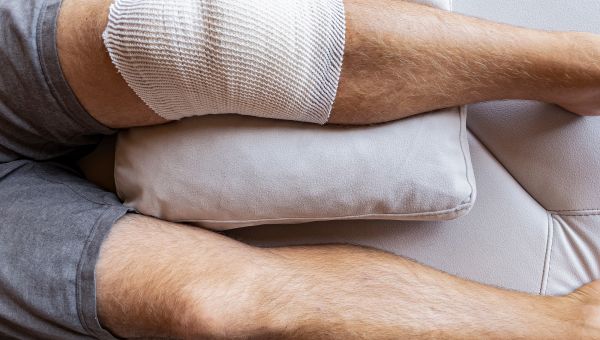
Try the R.I.C.E. method
“R.I.C.E. stands for rest, ice, compress and elevate,” says Dr. Chang. “These steps may reduce pain, inflammation and swelling.”
- Rest: If your knee is sore because of overuse from activities like running, rest will calm it down and allow the inflammation to subside, explains Chang.
- Ice: Apply an ice pack for 15 minutes at a time, every one-to-two hours.
- Compress: Wrap an ACE bandage, which you can buy at the drugstore, around your knee to decrease swelling.
- Elevate: Use pillows to raise your sore knee above heart-level while resting.
If your pain doesn’t improve after two weeks or it gets worse despite R.I.C.E., make an appointment with your healthcare provider.

Choose the right meds
“The most commonly used pills for knee pain are anti-inflammatory, or NSAID medications like ibuprofen and naproxen, which you can get over the counter,” says Chang. “These reduce inflammation, swelling and warmth, which then decreases pain.” Talk to your HCP before taking NSAIDs if you:
- Have a history of heart attack, stomach bleeding, kidney disease
- Are taking blood pressure meds
Another option is acetaminophen, which relieves fevers and pain, but won’t help with inflammation (and may not help with osteoarthritis pain). Don’t take more than 3,000 mg of acetaminophen per day. If you need more than, call your HCP. He or she may recommend a different treatment or pain medication.
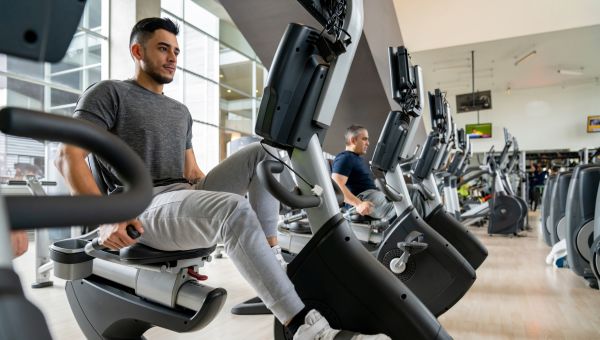
Take it easy
Protect your knee from further injury and allow it to heal by skipping these risky activities:
- The stair machine, rowing machine, squats (unless a physical therapist is guiding you)
- Lunges, kneeling
- Jogging, running
- High energy exercise classes
- Twisting, dancing
Instead, you may be able to exercise by walking on a soft platform treadmill, using the elliptical, riding a recumbent bike or practicing low-impact water aerobics. Even if you start to feel better after a few days, don’t rush into high-impact activities like running. Ease back into your routine and, when in doubt, ask your HCP which activities are safe for you.
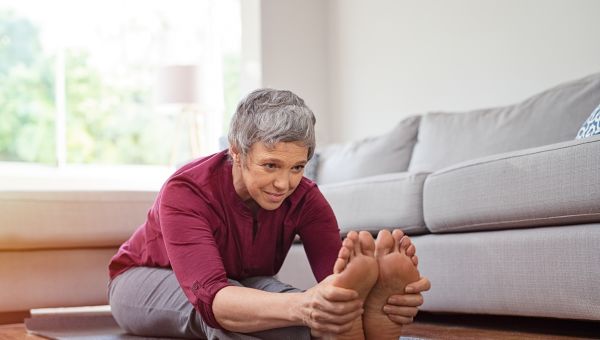
Practice smart stretching
Stretching can both relieve knee pain and prevent additional injuries. Lean into stretches slowly—don’t “bounce” to make yourself reach further. If you’re too aggressive, you could injure yourself more.
“One of the biggest culprits of knee pain is tight hamstrings,” says Chang. Hamstrings are muscles that run down the back of your legs and help your knees to “track” properly, or stay aligned when they bend. Stretch tight hamstrings by sitting on a flat surface with your legs straight in front of you. Lean forward, reaching towards your ankles. Hold the position for about 30 seconds, rest for 15 seconds, then repeat. Aim to do the stretch daily.
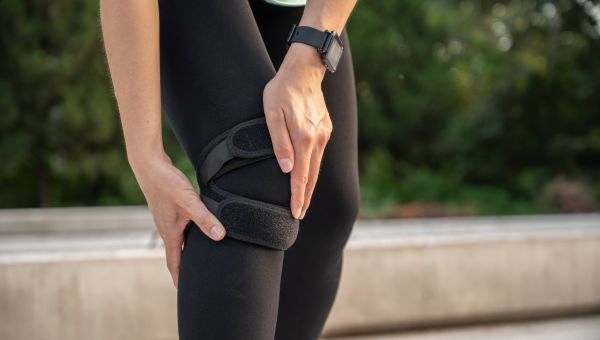
Wear a well-fitting brace
A knee brace can help stabilize your knee and give it support, says Chang. You can buy some braces at the pharmacy or in sporting goods stores for fairly low prices—around 20 to 30 dollars. They’re not custom made, but usually come in a range of sizes. Check the sizing chart on the back of the package to make sure you’re getting a good fit.
If you have a more complex issue like a torn ligament, then you’ll need a custom brace, which can be prescribed by your HCP, adds Chang.
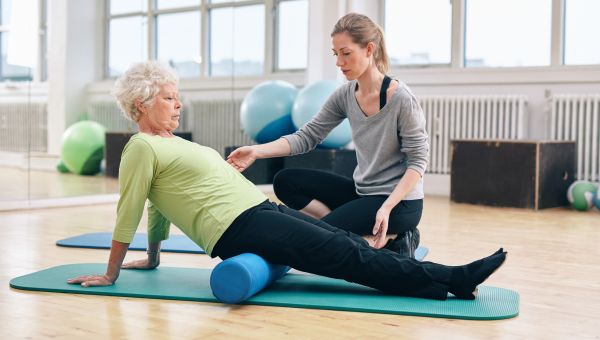
Sign up for physical therapy
Ask your family doctor or orthopedic specialist if physical therapy (PT) is an option for you. A physical therapist can provide personalized stretches and exercises to strengthen your knees and the muscles surrounding them. Targeted exercises can reduce pain and speed up the healing process. For some conditions like osteoarthritis and meniscal tears, PT may even be a safe alternative to surgery.
Need another reason to sign up for PT? After surgery, an injury or a new diagnosis, it may be intimidating or risky to get back into the gym. With PT, you’ll be able to set safe fitness goals and exercise under close professional supervision.
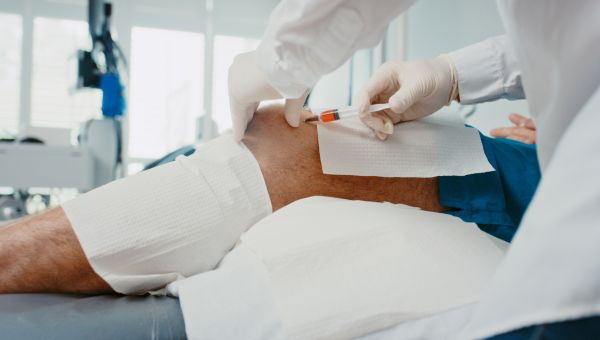
Ask your HCP about steroid injections
Part of your overall treatment plan may include a cortisone injection. Cortisone is a type of steroid, which your HCP may inject directly into the most painful area of your knee—after numbing the area with a topical medication. A steroid injection won’t cure your underlying problem, but it can reduce pain and inflammation from a few days to more than six months.
Even though the relief from a steroid injection is temporary, it can ease your pain long enough for:
- You to participate in physical therapy
- An arthritis or gout flare-up to run its course
- An injury to heal
You may also want to ask your HCP about hyaluronic acid injections, which can help ease osteoarthritis pain.
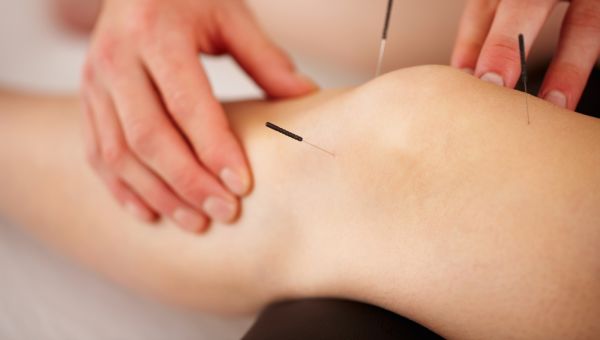
Try acupuncture
A number of studies suggest that acupuncture may help to ease pain, including knee pain. Acupuncture is a healing method from traditional Chinese medicine. It involves inserting fine needles into carefully selected points on your body. The needles are usually left in place for around five to 15 minutes, depending on your condition and anatomy.
Before making an appointment with an acupuncturist, make sure he or she:
- Is covered by your insurance
- Will work alongside your HCP, so your care plan can include both eastern and western methods
- Is certified by the National Certification Commission for Acupuncture and Oriental Medicine (NCCAOM) or the American Board of Medical Acupuncture (ABMA)
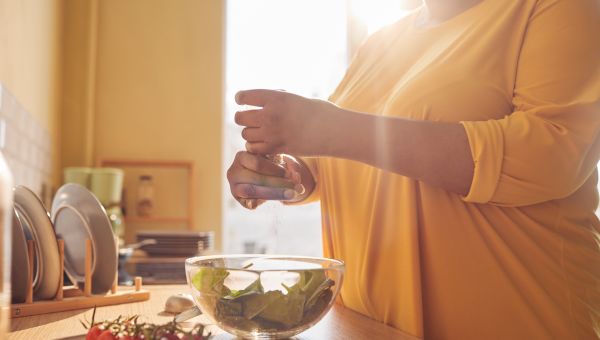
Lose weight by adjusting your lifestyle
Carrying around excess weight will:
- Put unnecessary strain on your joints
- Increase your risk of osteoarthritis
- Increase system-wide inflammation, which can aggravate joint pain
Making small changes to your everyday habits can add up and lead to healthy weight loss in the long run. Move naturally by building exercise into your routine; stop eating at 80 percent full and opt for plant-based dishes for most of your meals.
More On


video


video


video


video


video
